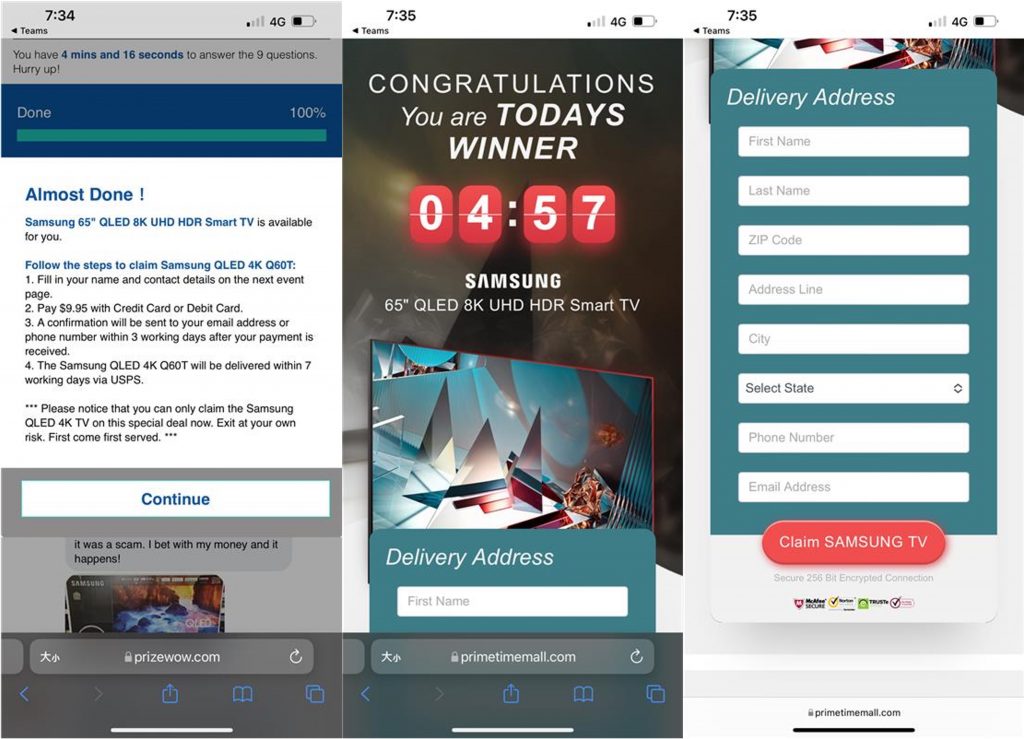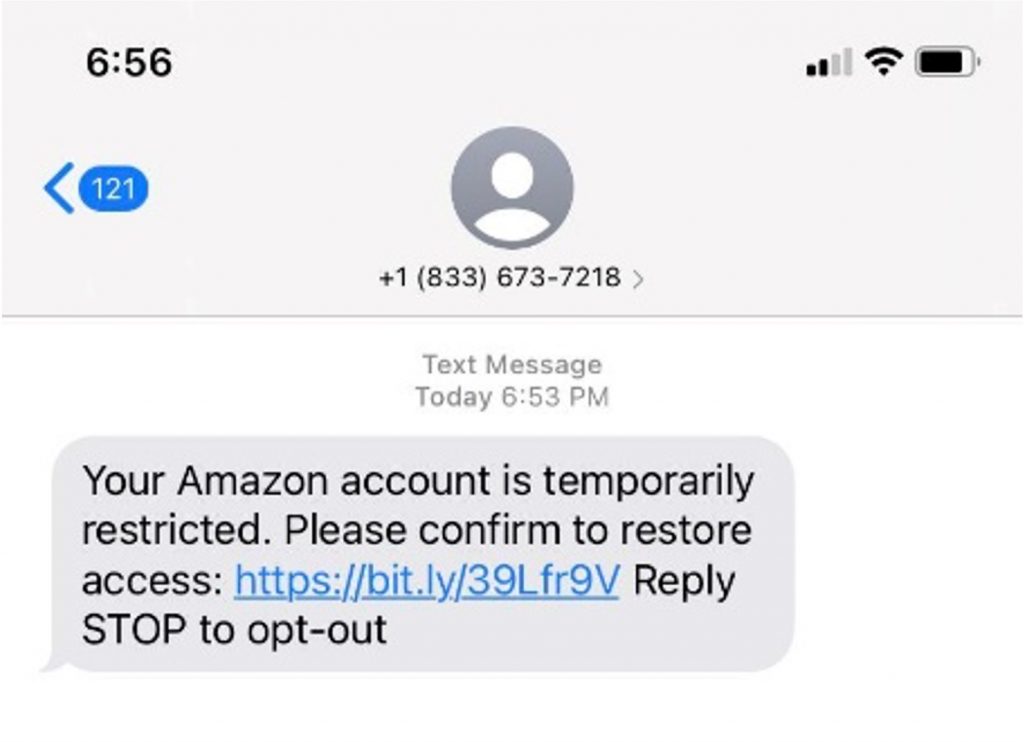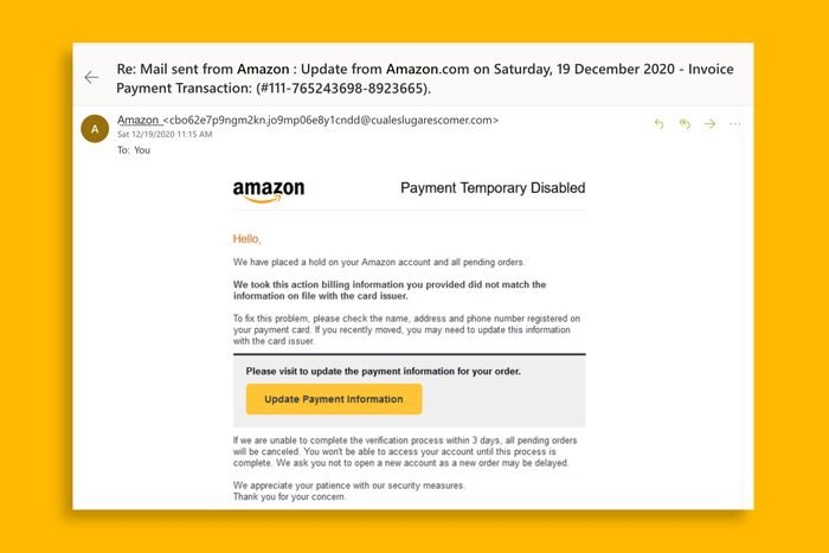Amazon scams are a really, really serious problem. Not only are they seemingly everywhere, but they’re also worryingly convincing. In fact, they’re so convincing that a woman in California recently lost her entire life savings to a particularly deceptive one. Keep on reading to learn about the latest Amazon scams and how to stay protected.
Amazon gift card and rewards scams
These latest Amazon gift card and rewards scams have been spreading like crazy via text message. Here are some examples of what the rewards scams look like:

Below is an example of one of the gift card scams that was sent to an unsuspecting person. It’s very similar in style to the recent Apple AirPods raffle scam text messages:
- RAW, someone from wants to send you an Amazon gift card as a present. Please claim your $1000 AMAZON GIFT CARD NOW!!! <URL>
Both types of scams arrive via text message and contain an embedded link. Once clicked on, the link will take you to a malicious site that is designed to trick you into entering your personal information.
There is no free TV or gift card — the scammers just want you to think there is so you feel comfortable giving them your personal information. This is the end goal for both these scams.
These types of scams will commonly ask you to provide your name, address, email address, and even detailed banking information. The scammers will then use this information to withdraw the money from your bank account and commit any number of other crimes, including identity theft.
Detect scam and phishing websites in real time with Trend Micro ScamCheck. It’s 100% free!
Amazon text scams
These scams have the same goal as the rewards and gift card scams (to steal your personal data), but they’re presented differently.

Below are some more examples of the text messages potential victims have received:
- your amazonprime cannot be charged. please revise your card at {URL} to keep your amazonprime access.
- <1subject:noreply@primeamazon> we couldn’t finish the latest subscriber payment. . to restore access , sign in and follow on-screen instructions. {URL}
- we were unable to charge your prime access. visit {URL} to keep your access.
Once again, if you click any of the links in the messages, you will be taken to a website designed to steal your personal information. And once the scammers have got their hands on that, well, they’re pretty much free to commit any crime they want — in your name!
Amazon email scams
Similar scams commonly circulate via email, too. Here’s an example of what they look like:

Woman loses life savings to Amazon scam
You might be thinking to yourself “yeah, but I would never fall for any of these scams.” The truth is, the scammers are getting more and more crafty by the day!
One woman in Carlsbad, California recently lost over $84,000 to an Amazon scam similar to the ones mentioned in this post. The woman described the scammers as “very professional” and said she didn’t notice any of the red flags before it was too late and she’d lost her entire life savings.
Click here to read the full story.
How to protect yourself
- Double-check the sender’s mobile number/email address.
- Free gifts or prizes are always a major red flag.
- Always go to the official website/application instead of using links from unknown sources.
- Use Trend Micro ScamCheck to surf the web safely (it’s free!)
- Add an extra layer of protection to your device with Trend Micro Maximum Security. Its Web Threat Protection, Ransomware Protection, Anti-phishing, and Anti-spam Protection can help you combat scams and cyberattacks. Click the button below to give it a try:
As ever, if you’ve found this article an interesting and/or helpful read, please do SHARE it with friends and family to help keep the online community secure and protected.
